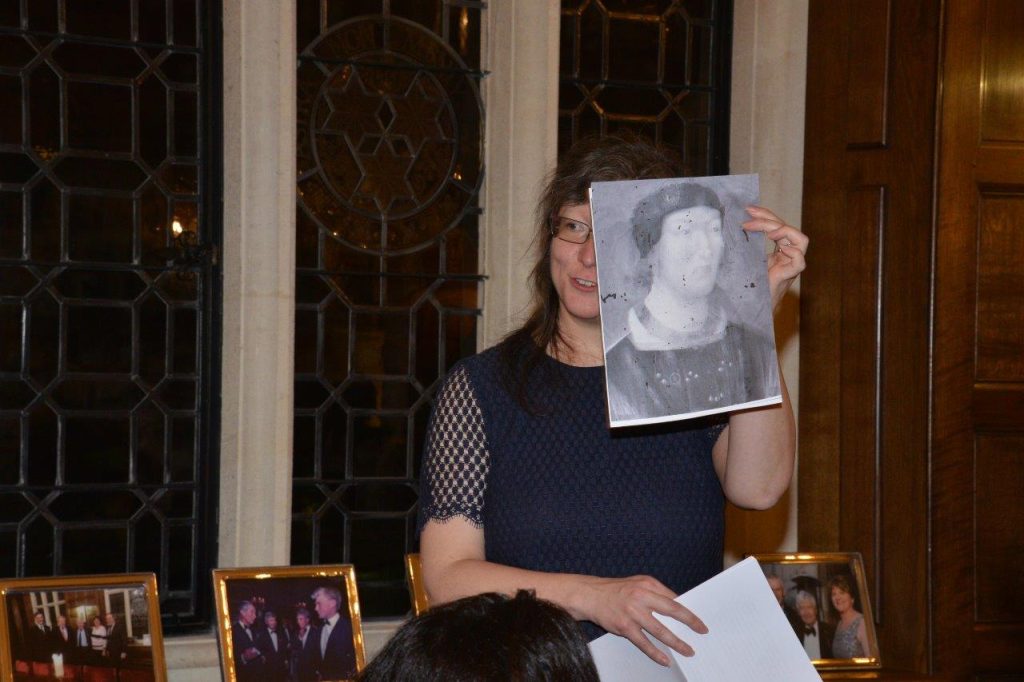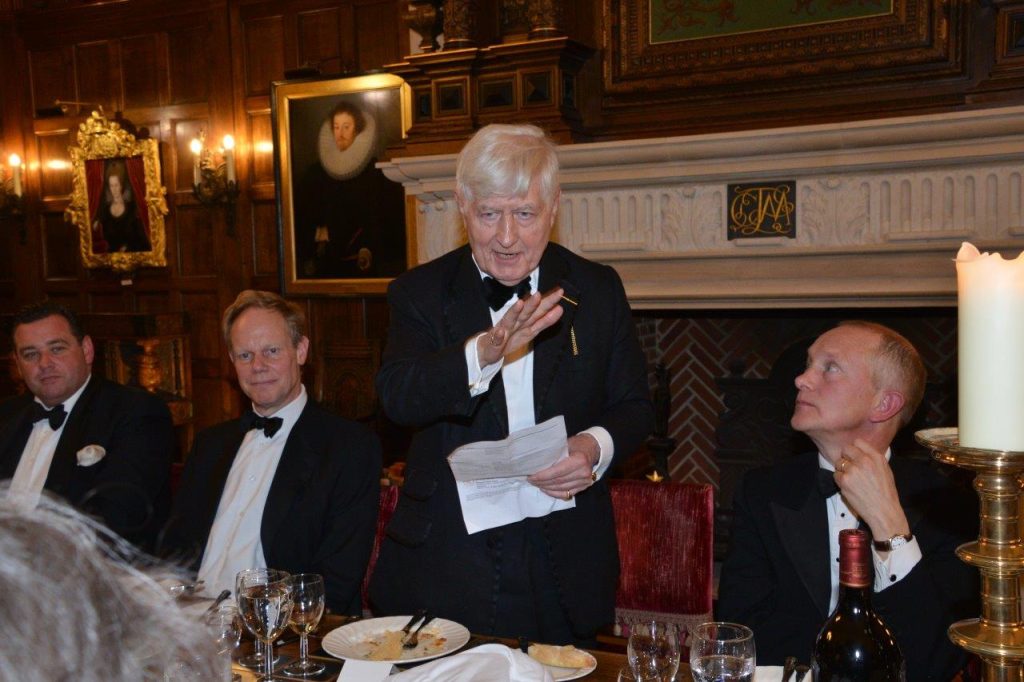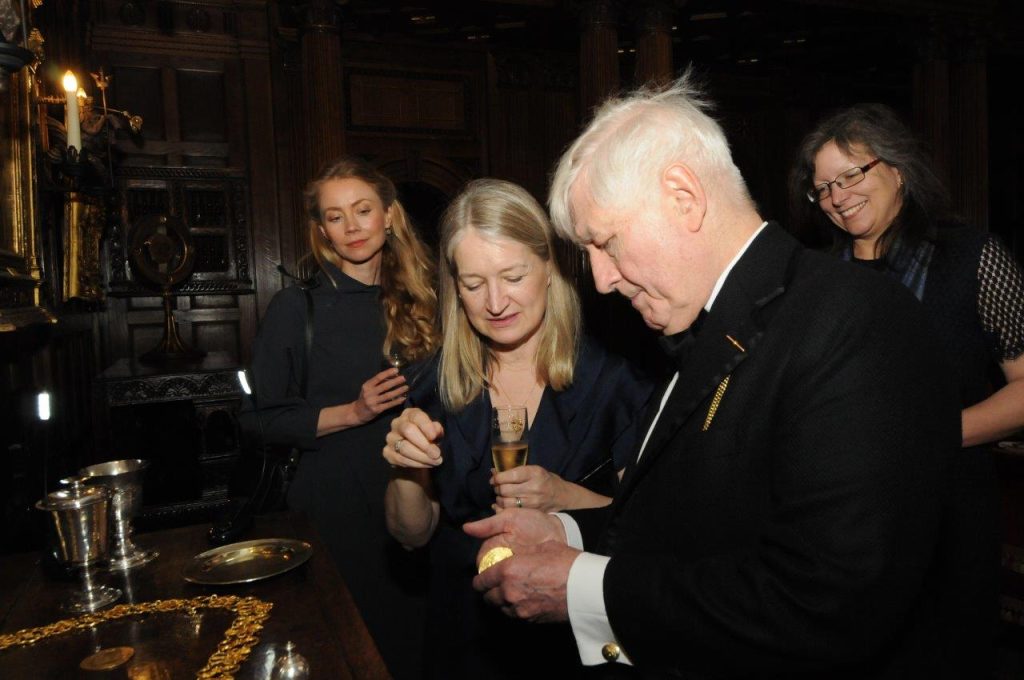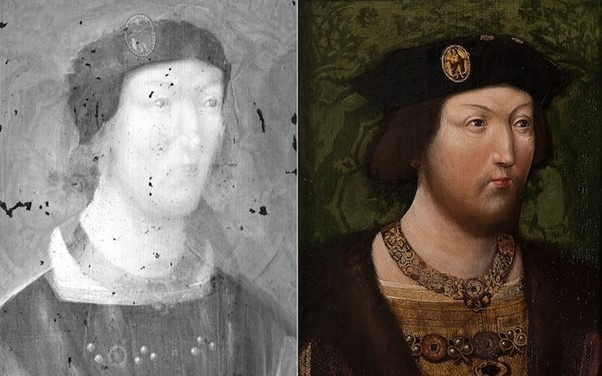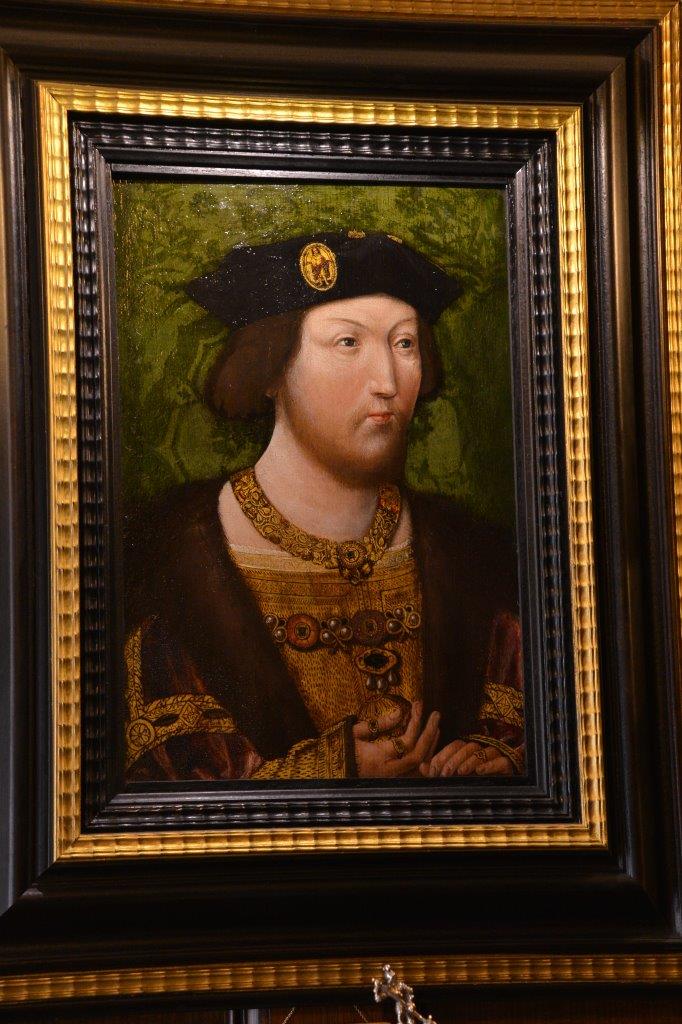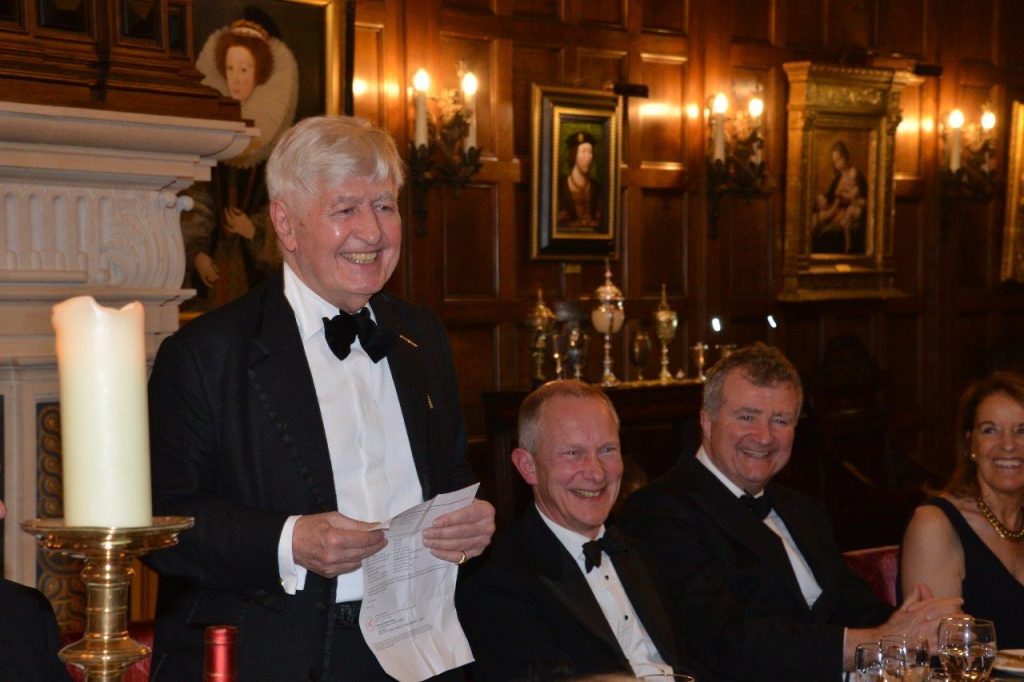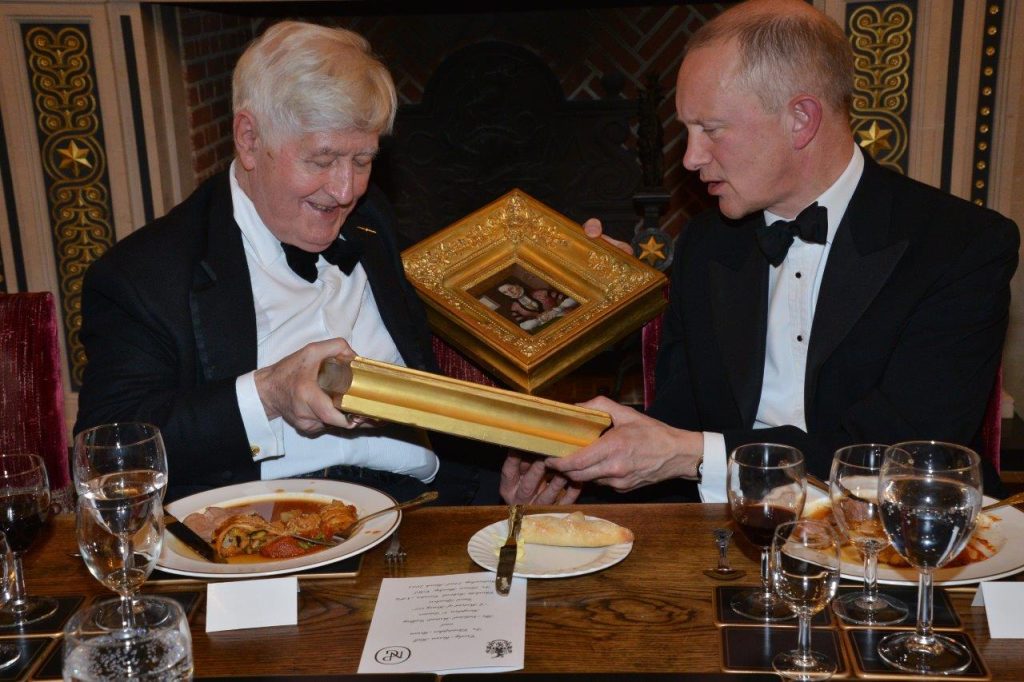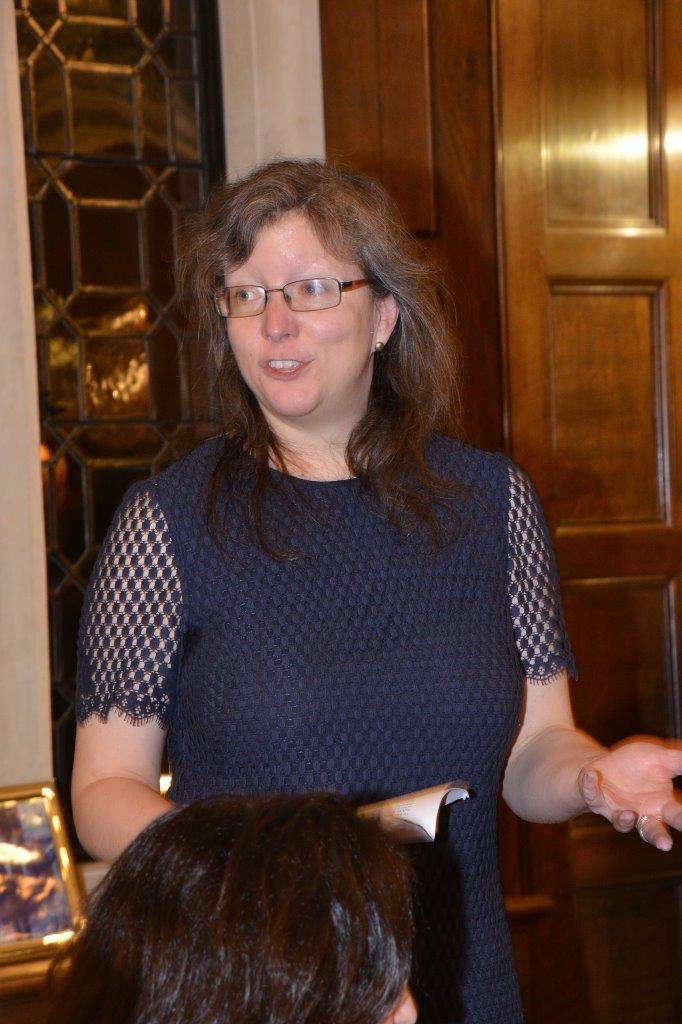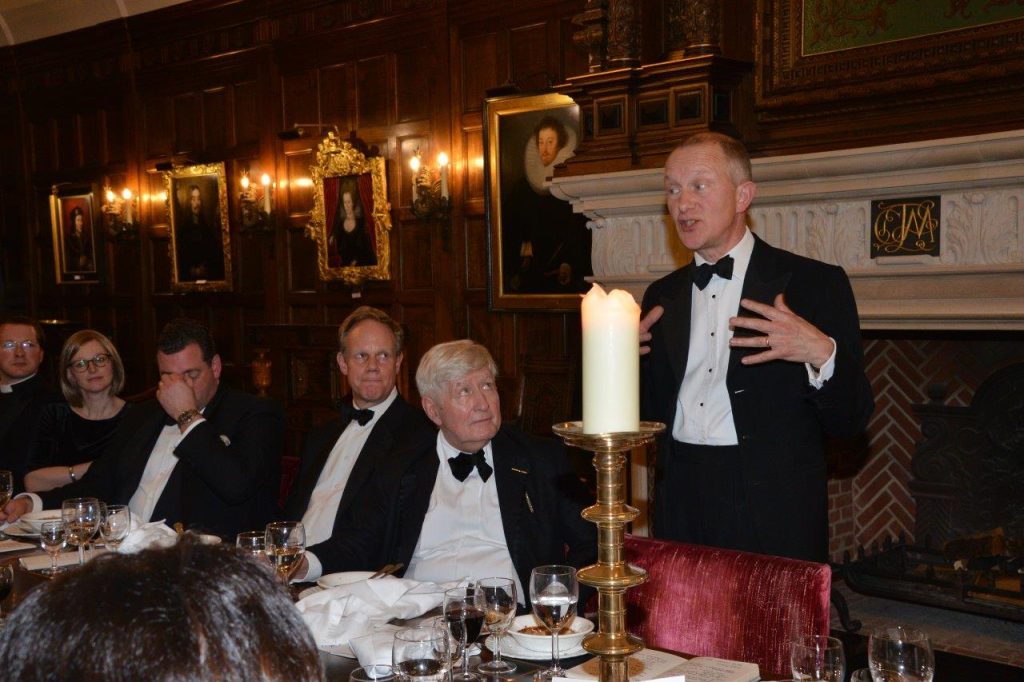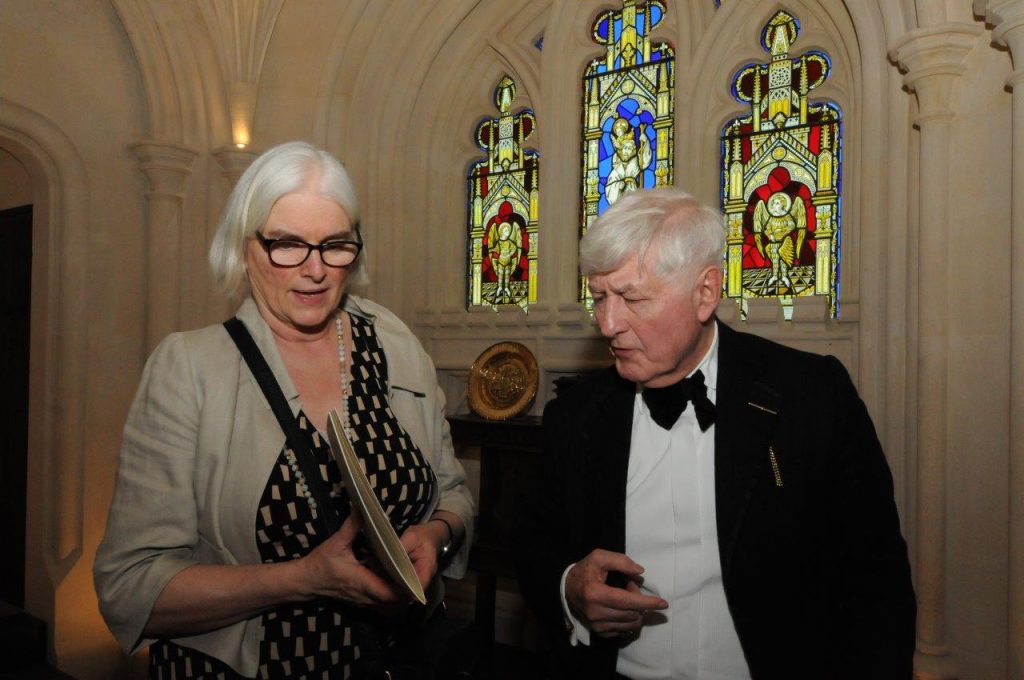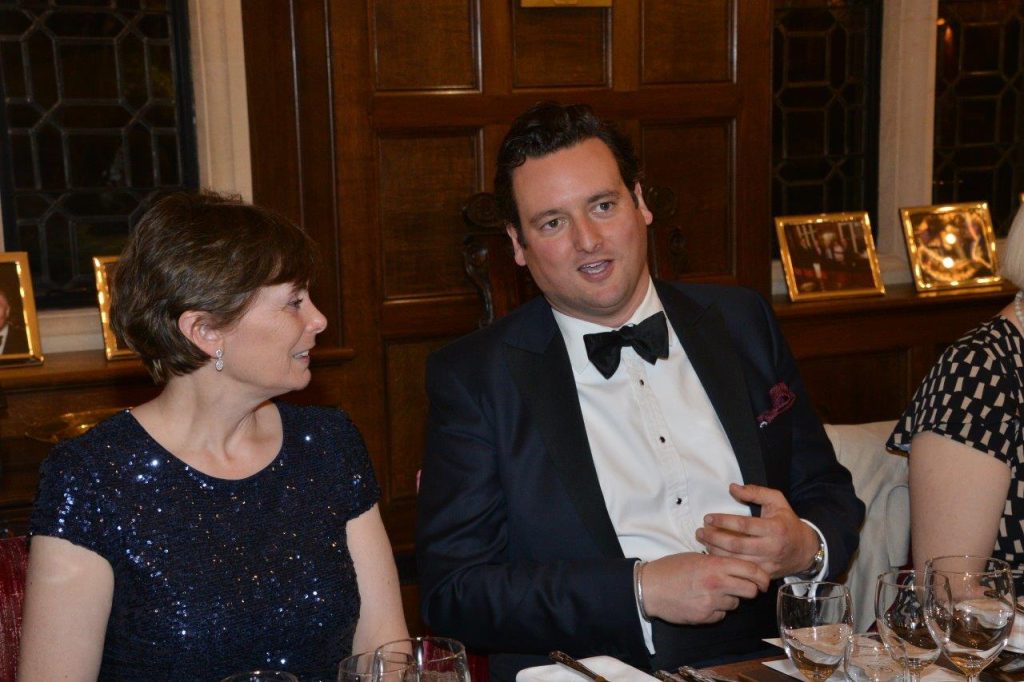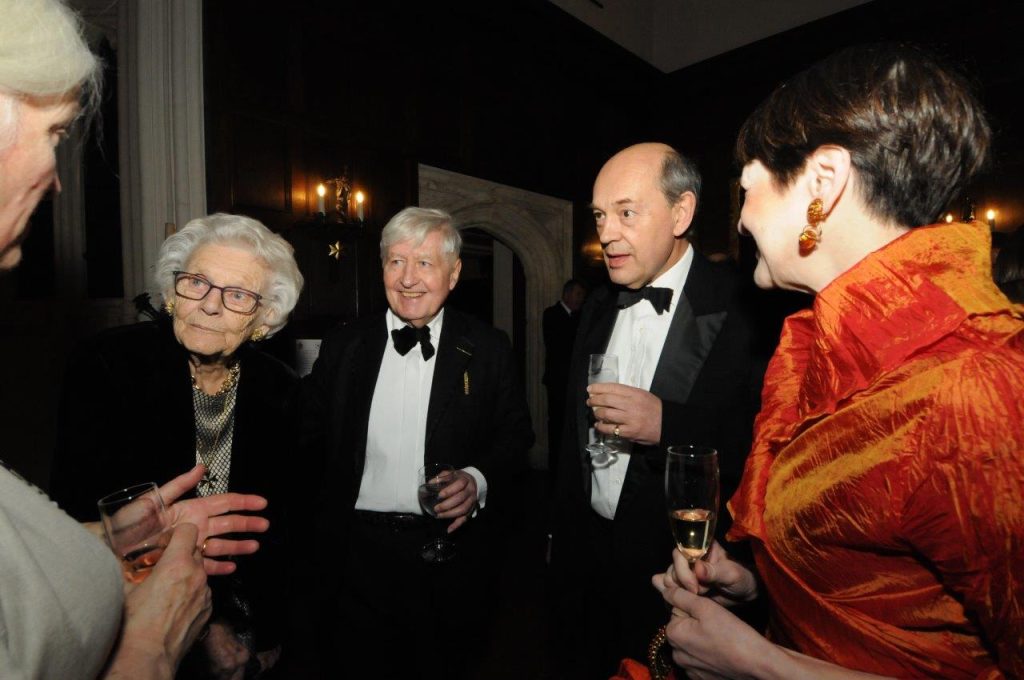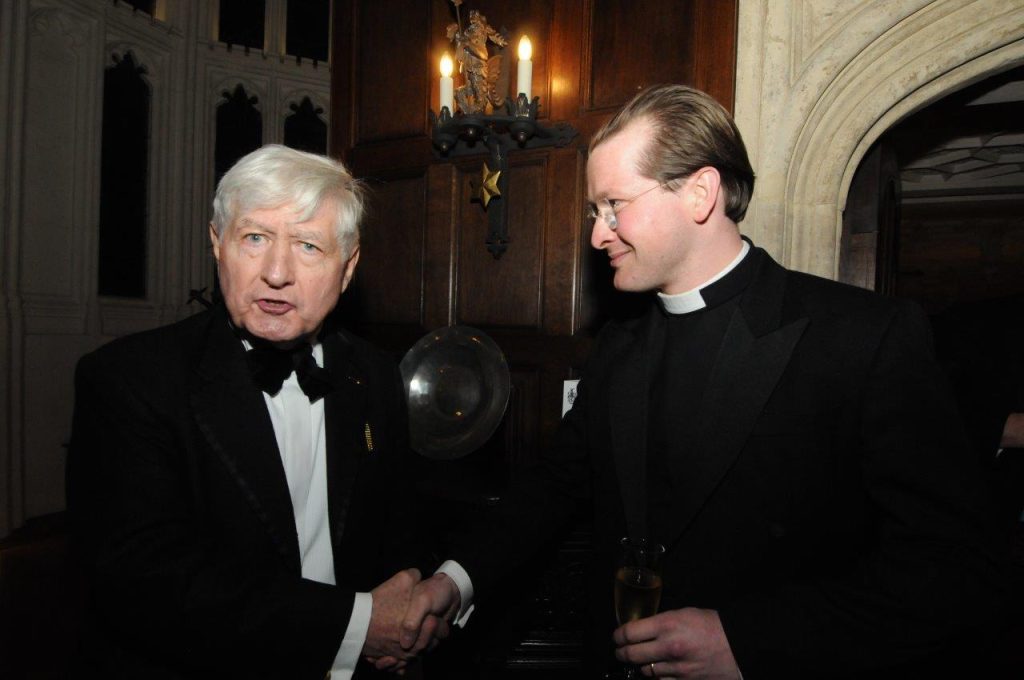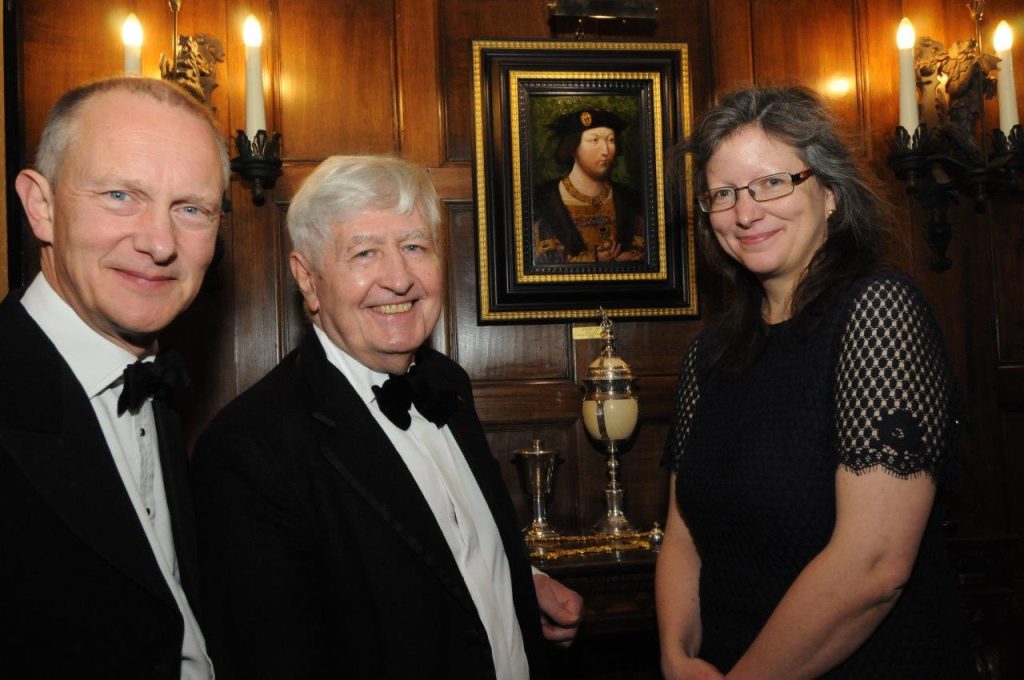
On Wednesday, 22 March 2023, Dr. Christopher Moran and the National Portrait Gallery hosted a Reception & Dinner entitled “A Portrait of Henry VIII” to reveal findings of an important portrait by Meynnart Wewyck of Henry VIII owned by Dr. Moran at Crosby Moran Hall.
The Sunday Telegraph, by Dalya Alberge
Henry VIII ensured his public image was updated as quickly as his wives, the discovery of an altered portrait has suggested.
A painting of the Tudor king, dating from 1519 when he was 28 with a beard and broad shoulders, was concealing an earlier portrait where he was clean-shaven and slimmer, researchers have discovered.
Owning a portrait of the king demonstrated loyalty to the crown, and it is thought that a court artist updated the image to please the painting’s owner, who wanted his latest likeness on their wall.
It is attributed to the Netherlandish artist Meynnart Wewyck, a court painter to both Henry VII and Henry VIII.
Although the portraits show the king in different attire – adorned with a large amount of gold in the 1519 version and with a close-cropped cap in the earlier painting – he is still recognisable from his distinctive long nose and almost pursed lips.
The original portrait came to light during extensive research and analysis into a group of early Tudor portraits conducted by the National Portrait Gallery (NPG) and the Hamilton Kerr Institute, the paintings conservation department of the Fitzwilliam Museum, University of Cambridge.
Charlotte Bolland, the NPG’s senior curator of 16th-century collections, told The Telegraph: “You can see the more youthful image of Henry VIII beneath the surface. This is an evolution of a portrait over time in a way that is really intriguing.”
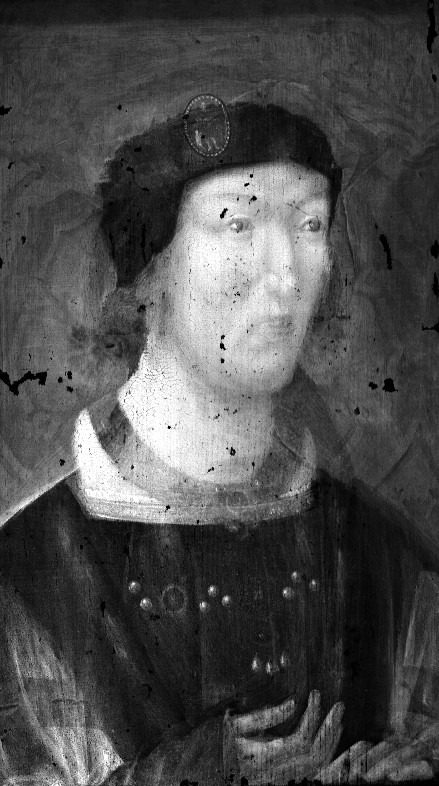
Dr Bolland said that the later portrait dates from a time when Henry was establishing the identity of the dynasty and his personal power.
“His beard might have inspired comment – it would have been a new style for the king, which he first grew in 1519 in preparation for a meeting with his great rival Francois I of France,” she said.
“His status would have been obvious in his lavish clothing – the Venetian ambassador described him as the best-dressed sovereign in the world.”
Simon Thurley, a leading Tudor historian, said: “What is fascinating is that, as the king aged – and, more importantly, as he adopted new fashions – the person who owned this portrait started getting very worried that what he had on his wall didn’t look anything like the king.
“He probably took it back to the artist and said ‘please bring this painting up to date because the whole point of having this is it expresses my loyalty to and affection for the monarch and when people walk into the room, it doesn’t look anything like him’.
“That’s utterly fascinating because it reveals a Tudor sensibility to the subtleties of what their sovereign looked like and the anxiety that in some way the thing they had hanging on their wall didn’t actually represent the person who they were showing allegiance to.”
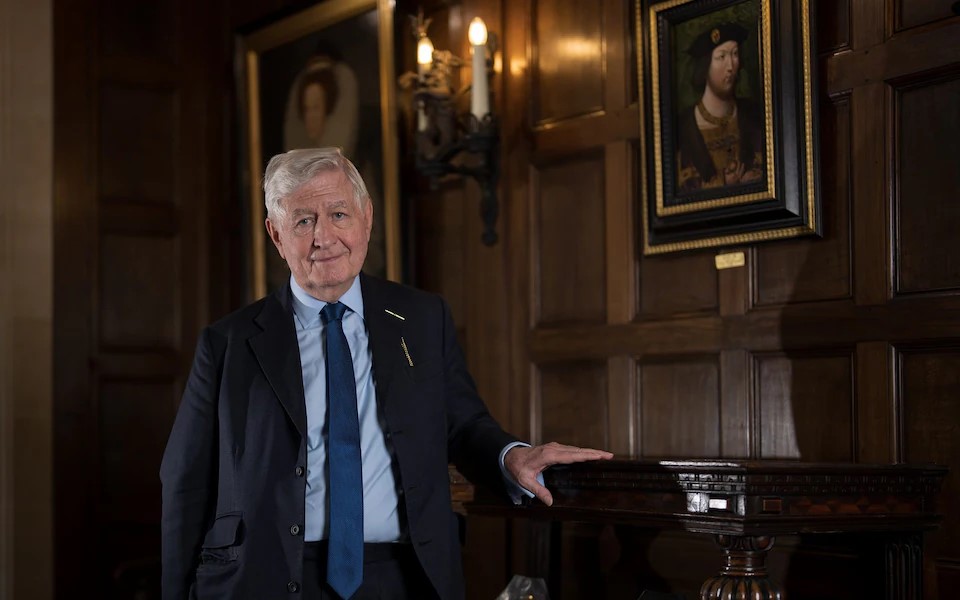
He added that Henry VIII would have sat for this artist, a rarity for a king whose likeness was mostly copied from patterns.
“We don’t know how this updating process actually worked, but I suspect it was taken back to the studio and they had a master image that they were then using to do an update,” he said.
“Maybe there had been a queue of people round the block all dismayed that the king has grown a beard and he was now unrecognisable and everybody wanted their painting updated. We just don’t know. That’s why the whole painting is utterly fascinating.”
The painting, which measures 39cm by 26cm, is part of a Tudor collection amassed by Christopher Moran, an arts expert and philanthropist, who commissioned the scientific analysis.
“This is an exciting discovery,” he told The Telegraph. “Two images for the price of one of the king by a recognised painter of the period.”
Over the last 30 years, Dr Moran has been rebuilding and restoring the historic 15th-century Crosby Hall – now renamed Crosby Moran Hall – with plans to open it to “art lovers”.
It was once home to Sir Thomas More, Henry VIII’s lord chancellor, who was beheaded for refusing to accept the king as head of the Church of England.
Original article posted 25 March 2023, The Sunday Telegraph: Henry VIII portrait was repainted to keep up with his weight gain (telegraph.co.uk)
